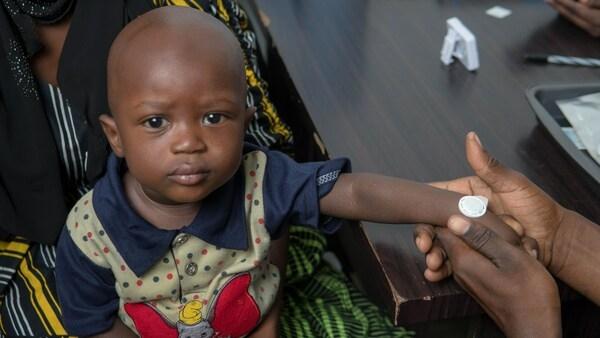1st clinical trial of measles vaccine delivery via stickers shows promise

New Delhi, May 27 (IANS) The measles-rubella (MR) vaccine delivered via stickers to adults and infants as young as 9 months old is safe and effective, according to results of the first clinical trial.
The trial, evaluated the safety, immunogenicity, and acceptability of the commercially available MR vaccine from the Serum Institute of India and delivered via US-based life science company Micron Biomedical's microarray technology in adults, toddlers and infants, was presented at the MICRONEEDLES 2023 conference in Washington.
In the trial, conducted in The Gambia, 45 adults, 120 toddlers (15-18 months old) and 120 infants (9-10 months old) were enrolled and were randomised to receive MR vaccine either by Micron's microarray, which is painless, or by subcutaneous (SC) injection.
Vaccination by microarray was found to be safe and well tolerated with no allergic reactions or related serious adverse events.
The immunogenicity shown was high and similar for those who received the vaccine via stickers or injection.
Over 90 per cent of the parents of toddlers and infants enrolled in the trial who took part in an acceptability survey said that the microarray technology would be better than injection to give vaccines to children.
"This trial may help shape future approaches to reaching children and families with vaccines," said James Goodson, Senior Scientist and Epidemiologist in the Global Immunisation Division at the Centers for Disease Control and Prevention (CDC), and co-investigator for the study, in a statement.
"These are exciting results which show, for the first time, the potential for microarray patches to safely and effectively deliver vaccines to children," added Ed Clarke, Head of Infant Immunology at Medical Research Council, The Gambia (MRCG).
In many low- and middle-income countries (LMICs), the MR vaccine coverage rate remains well below the threshold recommended by the World Health Organization (WHO) to sustain disease elimination.
The dissolvable microarray technology, in which vaccines are embedded, is designed to overcome critical logistical vaccination challenges that exist in LMICs and to increase access to life-saving vaccines.
The technology aims to significantly simplify the transport, storage and administration of vaccines that are traditionally delivered via injection and eliminates sharp waste.
"Supporting innovations in vaccine delivery is critical to addressing ongoing health inequities," Goodson said.
"This clinical trial is an important step forward in the critical development pathway for the MR microarray patch toward licensure," he added.
Disclaimer: This story has not been edited by the Sakshi Post team and is auto-generated from syndicated feed.




